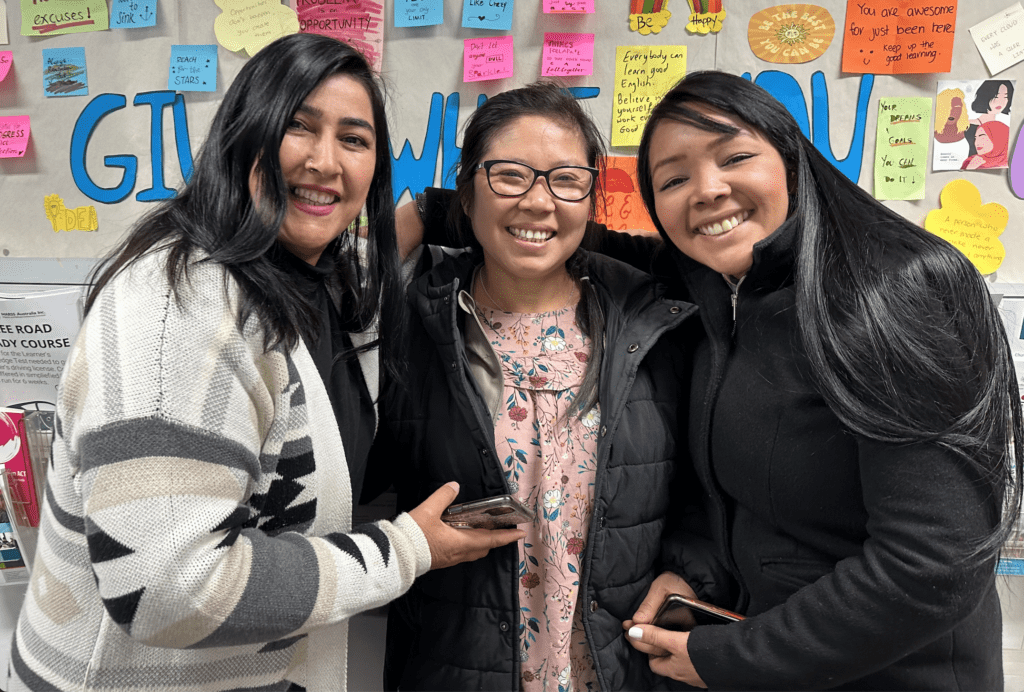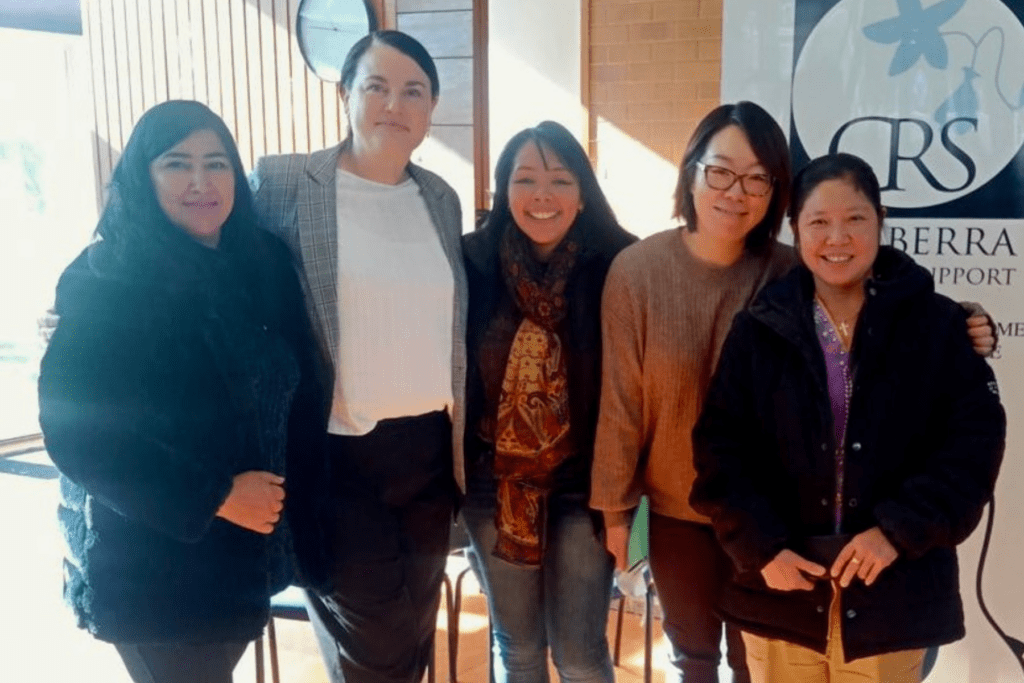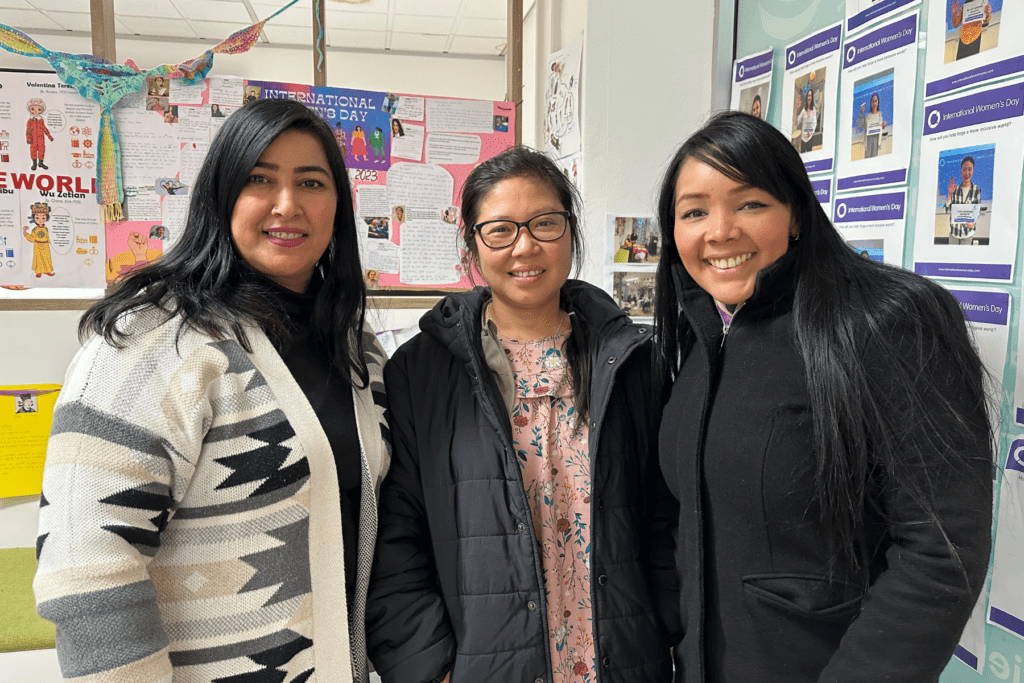Students supporting each other for settlement success

They came to Australia from three different countries, and from vastly different backgrounds and circumstances. But despite the fact they have known each other only a few months, these three Canberra women share a bond much deeper than any lifelong friendship.
Homaira, Chawsu and Jazmin (pictured above L-R), who received Canberra Refugee Support Education Awards in Canberra last month, said while they enrolled in the Adult Migrant English Program (AMEP) to learn English, the support they received from each other was integral in making their settlement journey easier.
Navitas Skilled Futures AMEP Academic Team Leader Sharon Gilbert said the trio’s relationship was typical of the student experience at NSF, where people of all ages and backgrounds felt understood and supported by each other, contributing to their motivation to attend college, do well and succeed in their new lives.
“The AMEP fosters a safe and welcoming environment that enables opportunities for students to form friendships and networks which aids in their settlement journey,” Sharon said.
“Students may not have family, or may be isolated, so it is a really important part of the AMEP to offer students a place where they feel safe and enjoy coming that creates opportunities for them to make real friendships that can continue outside of the classroom.”
“You see a lot of real friendships being formed and incredible support they can offer each other in times of need.”

Hamaira, 45, from Afghanistan, Chawsu, 46, from Burma, and Jazmin, 36, from Venezuela, said the fact they all needed to speak in English to communicate with each other helped them even more.
“We all support each other,” Jazmin said. “We listen to each other’s stories and we talk to each other. This is helping us with our English, and with our settlement.”
Jazmin, who arrived in Australia with her husband in November last year, said she had a good prosperous life in Venezuela but was forced to flee to Colombia for political reasons, with her husband “in danger for his life”.
“We had to put our lives in two small bags and move to Colombia as political refugees, where it was very difficult to survive,” she said. “My father-in-law is an Australian citizen, and he sponsored us to come here.
“Waiting for the visa was not easy; it took more than three years. But COVID-19, border closures and financial problems were not enough to make us lose our hope to come to Australia and feel free, feel safe and find opportunities for a better life.”
“I am now working hard to improve my English so I can integrate into Australian society. But it has been difficult. I lost all my life. My life was very happy in the past. I went to school, I have a degree in tourism, I love working in travel, now I have to start again. We are all starting again. It helps to be around people who understand.”

The three women freely share tears and hugs as they tell their stories. They explain it is hard to talk about their past, but they find strength and inspiration in each other.
Chawsu fled Burma for Thailand in 1998, where she remained in a refugee camp for 24 years – more than half her life. She has now been in Australia for six months and can’t find the words to explain how she feels.
“It’s overwhelming for her,” Jazmin says, on her behalf, seeing her struggle with emotion. “She is very happy here.”
Chawsu said: “Thailand was very bad. We couldn’t go outside. My mother and sister are still there. They apply to come here but I’m still waiting.”
Chawsu, who met and married her husband in 2018, said she loves studying at Navitas in the AMEP.
She said the best part was definitely “making many new friends from different countries”.
Homaira agreed that making friendships at college was not only a highlight, but essential for everyone’s wellbeing.
The mother of six (five sons, one daughter), who came to Australia via Pakistan in 2019, said meeting other mums and sharing stories and advice helped keep her smiling, despite her fears for friends and family in her homeland, especially other women. She said Australia was “a happy place” for women.
“There is freedom here for women. I can work here; I can study. My daughter is working here – she’s not scared. All my sons are very happy. In Afghanistan people not listen to women and bad things happen.”
Homaira, who speaks five languages and is “working very hard” on her English, while also looking after her sons and doing volunteer work, said she wants to study film production so she can tell stories of women in her homeland.
“Like me, other women have not good story,” she says of her own life in Afghanistan, orphaned as a baby and married at 13. “I want to tell their stories and show them for all. They are important.”

The three women said they were very proud to have been nominated by their teachers and staff at NSF Canberra for the CRS Education Awards in Refugee Week, that recognised their “meritorious performance” in their AMEP classes.
Sharon Gilbert said there were many deserving people, but these three represented the spirit and determination of NSF students, especially those supporting each other to succeed.
“We have students from many backgrounds and life circumstances, such as these three women. They are all on their own journeys but building social capital enables them to feel a sense of belonging and feeling of overall happiness,” she said. “They should be very proud of their achievements.”
*The Adult Migrant English Program (AMEP) is funded by the Australian Government Department of Home Affairs.

